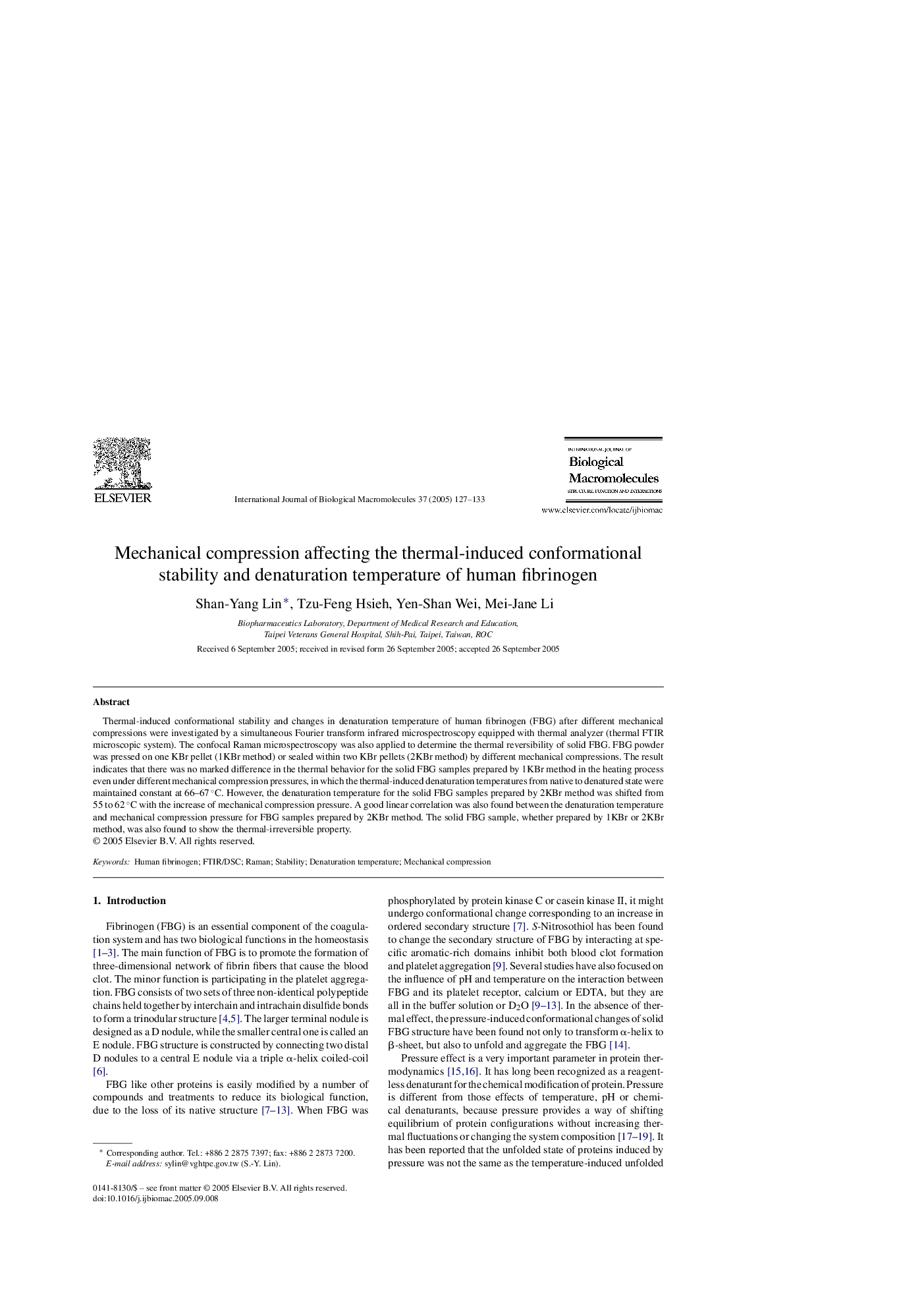| Article ID | Journal | Published Year | Pages | File Type |
|---|---|---|---|---|
| 9890840 | International Journal of Biological Macromolecules | 2005 | 7 Pages |
Abstract
Thermal-induced conformational stability and changes in denaturation temperature of human fibrinogen (FBG) after different mechanical compressions were investigated by a simultaneous Fourier transform infrared microspectroscopy equipped with thermal analyzer (thermal FTIR microscopic system). The confocal Raman microspectroscopy was also applied to determine the thermal reversibility of solid FBG. FBG powder was pressed on one KBr pellet (1KBr method) or sealed within two KBr pellets (2KBr method) by different mechanical compressions. The result indicates that there was no marked difference in the thermal behavior for the solid FBG samples prepared by 1KBr method in the heating process even under different mechanical compression pressures, in which the thermal-induced denaturation temperatures from native to denatured state were maintained constant at 66-67 °C. However, the denaturation temperature for the solid FBG samples prepared by 2KBr method was shifted from 55 to 62 °C with the increase of mechanical compression pressure. A good linear correlation was also found between the denaturation temperature and mechanical compression pressure for FBG samples prepared by 2KBr method. The solid FBG sample, whether prepared by 1KBr or 2KBr method, was also found to show the thermal-irreversible property.
Related Topics
Life Sciences
Biochemistry, Genetics and Molecular Biology
Biochemistry
Authors
Shan-Yang Lin, Tzu-Feng Hsieh, Yen-Shan Wei, Mei-Jane Li,
